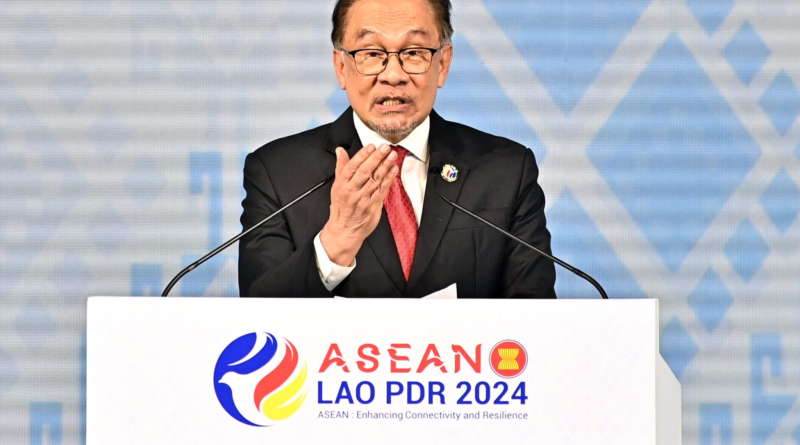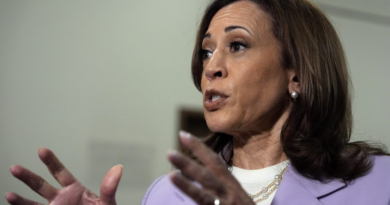Malaysia’s prime minister will try to keep the country’s ‘feel-good’ vibes alive with his upcoming budget
Malaysian Prime Minister Anwar Ibrahim will announce his third budget on Friday, following a good 2024 for the Southeast Asian economy. The country’s economy is growing faster than expected, investors are flocking to its stock market, and companies like Microsoft and Google are pledging billion-dollar projects.
The Kuala Lumpur Composite Index, which tracks the 30 largest companies on the Malaysian exchange, is up almost 13% this year, making it one of the region’s best performers.
Anwar has previously noted that he wants next year’s budget to focus on living standards and Malaysia’s development. UOB analysts expect new talent development incentives, housing grants, and a continuation of tax incentives for companies moving operations to Malaysia.
Importantly, analysts expect Anwar to spend, delivering an expansionary budget that will keep the economy “feel-good factors” afloat.
How has Malaysia’s economy performed under Anwar?
Analysts were initially wary about Malaysia’s prospects this year, as macroeconomic headwinds threatened trade flows.
“There was a lot of caution about the trade outlook at the start of the year,” Julia Goh, senior economist at UOB, says. “But somewhere after the first quarter, we saw stronger than expected GDP, and it strengthened further in the second quarter.”
Malaysia’s central bank now expects the economy to grow at the upper end of its initial forecast of 4-5%, following a bumper second quarter of 5.9% GDP growth year-on-year.
“The GDP growth in the recent quarter is very good for a middle-to-high income country,” Wen Chong Cheah, an Asia-Pacific analyst at the Economist Intelligence Unit, says.
Malaysia’s economy is now 12% larger than it was before the pandemic; that’s a better record than every other country in Southeast Asia bar Singapore. Even better, Apurva Sanghi, the World Bank’s lead economist for Malaysia, thinks the country could hit high-income status by 2028 if reforms continue (and with a bit of luck).
“Things came together” in 2024, UOB’s Goh says, thanks to strong exports and inward investments. She explains that companies are investing in the region as they try to diversify their operations and mitigate geopolitical risk.
Big tech companies like Oracle, Microsoft and Google have pledged billions of dollars in new Malaysia-based data centers this year, hoping to tap into growing regional interest in AI.
The inflow of investments from big tech firms follows on from previous investments from the electronics and engineering sector, particularly semiconductors, which Goh suggests makes up about 6% of Malaysia’s GDP and 40% of its exports. Malaysia, which is already a testing and assembly hub for chips, has attracted multibillion dollar investments from companies like Intel and Infineon in recent years.
The Anwar administration is keen to move up the chip value chain, touting it as a “non-aligned” location for companies to invest. Malaysia unveiled a three-phase chip strategy in May, starting with advanced chip packaging before moving into design and then cutting-edge manufacturing. The government hopes to attract at least 500 billion Malaysian ringgit ($116.4 billion) of investments for the first phase.
“This investment cycle is something we have not seen for a long time,” Goh said. Timing helps too: Announcements, timed a few months apart, are contributing to “positive vibes.”
More investments may be coming. As interest rates decrease, companies may invest even more into Malaysia, Cheah from the EIU notes.
Stable politics
Recent political stability is “one of the strongest factors” behind Malaysia’s strong economic growth, Cheah says. “Stable politics leads to fewer policy flip-flops.”
Malaysia’s politics had been in turmoil ever since former prime minister Najib Razak was implicated in the 1MDB scandal. Najib lost a general election in 2018 to Mahathir Mohamad and Anwar—political colleagues, turned rivals turned allies again. Yet political infighting and the COVID pandemic led to a series of changing governments and new prime ministers. Anwar eventually won the prime minister position after a close election at the end of 2022.
Cheah says that political stability has allowed the Anwar government to make unpopular, yet necessary, decisions, like the decision to remove diesel subsidies in June. The policy could save the government as much as 4 billion ringgit ($928 million) a year.
Anwar could make more tough decisions to trim Malaysia’s fiscal deficit, such as removing subsidies for petrol and sugar, and barring education subsidies from going to high earners.
A big threat to Malaysia’s “feel-good” vibes may be from something entirely out of its control: The U.S. presidential election in November. Both Cheah and Goh warn new U.S. policies could lead to supply chain disruptions and increased costs.
“A Harris administration could double down on the Inflation Reduction Act, which could lead to more reshoring,” Cheah warns. Donald Trump, on the other hand, plans to impose broad duties on goods entering the U.S. “Malaysia could be subject to those tariffs,” Cheah says.




